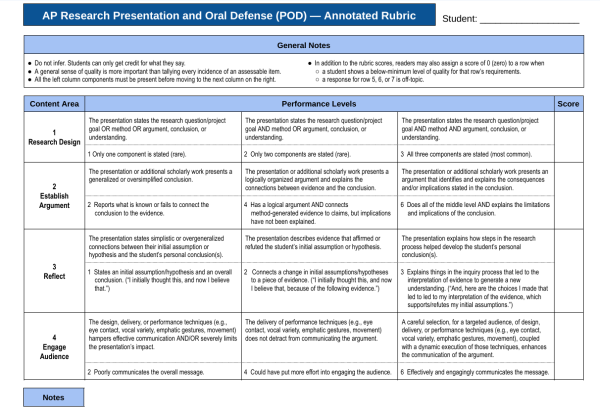3 Reasons Why Your Teacher Should Take Your Classroom Outside
You’re familiar with the feeling of being locked up in a cold classroom, blinded by artificial, fluorescent light and aching from being hunched over a desk. It’s awful. To make matters worse, it couldn’t be a more beautiful day outside. With summer easing into the comfortable temperatures of autumn, nature is reaching its peak while you are imprisoned within an ice-cold learning chamber. The urge to feel the Sun may even sway you to beg your teacher to learn outside in the courtyard, and yet, (s)he refuses. Here’s why your teacher should actually listen to you.
1. Decreased stress levels
As an Academic Magnet student, most of you have experienced the overwhelming surge of stress that often washes over your entire being. While short-term stress has been proven to enhance performance, AMHS typically procures the long-term and detrimental consequences of stress. A study conducted at the Rosalind Franklin University of Medicine and Science concluded that stress prevents neuronal proliferation and actually reduces the volume of the human hippocampus¹. What is the hippocampus responsible for?, you may ask. Excellent question. The hippocampus is heavily associated with memory, learning, and neurogenesis: the formation of new brain cells. That being said, it is imperative that AMHS students reduce their stress levels in order to maintain a healthy mental state. How could one accomplish such a challenging goal? Exposure to the outside world. According to a Netherlands experiment, focused on the physiological benefits of interacting with nature, human stress and cortisol levels were significantly diminished after subjects experienced time outside². With such scientific research poured into the subject, you can argue that the fresh air provides a much friendlier environment for learning students that are in desperate need of some high-quality R&R.
2. Improved memory
While Mr. Stackhouse, our highly reputable source for all things psychology, may defend the theory of state-congruent memory (to elaborate: learning in a classroom, and then taking a test in the same setting should allow the brain to better recall stored information), a proven way to improve memory recall is to
experience new environmental stimuli. When students are forced into the same setting for 35 hours a week (same artificial light, same unforgivingly cold temperatures, and same terrible assigned seating), they fail to experience anything new or exciting. That being said, taking the kids to a fresh, pleasant environment is a sure-fire way to improve student memory.
3. It’s in our blood + health benefits
As human beings, we are innately familiar with nature and desire to experience our environment. Since our hunter-gatherer era, we have developed strong bonds with our natural habitats. However, due to industrialization, this solidified connection is beginning to break away as we are further encouraged to alienate ourselves within closed doors. According to an experimental study conducted in 2013, Gladwell, Valerie F., et al. concluded that the “human costs of this separation include attention difficulties and behavioural problems, higher rates of emotional and physical illness and diminished use of the senses”.³ Additionally, in an article based on Seasonal Affective Disorder (SAD), psychologists Roecklin and Rohan state that the disorder typically develops during the autumn/winter seasons.⁴ Why? Because of the lack of natural light in this time of the year, individuals produce an increased amount of melatonin and often experience symptoms of anxiety, depression, and mental stress. I would certainly hope that your teachers do not wish that on you as they intentionally deprive you of a nice hug from the Sun’s rays.
To conclude, it is in everyone’s best interest to venture out into the courtyard every once in a while. A change of scenery never hurt anyone, and it would be great opportunity to break the boring routine of the school week. You might as well shoot your shot, and ask your teacher to take the classroom outside. If that does not initially work, try to solidify your stance with the aforementioned points. If you still come face-to-face with failure, then just wait until your next Focus period and relax outside!
References:
- Kim, Eun Joo, et al. “Stress Effects on the Hippocampus: a Critical Review.” Learning & Memory, vol. 22, no. 9, 18 Sept. 2015, pp. 411–416., doi:10.1101/lm.037291.114.
- Berg, Agnes E. Van Den, and Mariëtte H.g. Custers. “Gardening Promotes Neuroendocrine and Affective Restoration from Stress.” Journal of Health Psychology, vol. 16, no. 1, 3 Sept. 2010, pp. 3–11., doi:10.1177/1359105310365577.
- Gladwell, Valerie F, et al. “The Great Outdoors: How a Green Exercise Environment Can Benefit All.” Extreme Physiology & Medicine, vol. 2, no. 1, 2013, p. 3., doi:10.1186/2046-7648-2-3.
- Roecklin, Kathryn A., and Kelly J. Rohan. “Seasonal Affective Disorder.” The Corsini Encyclopedia of Psychology, 2010, doi:10.1002/9780470479216.corpsy0830.













